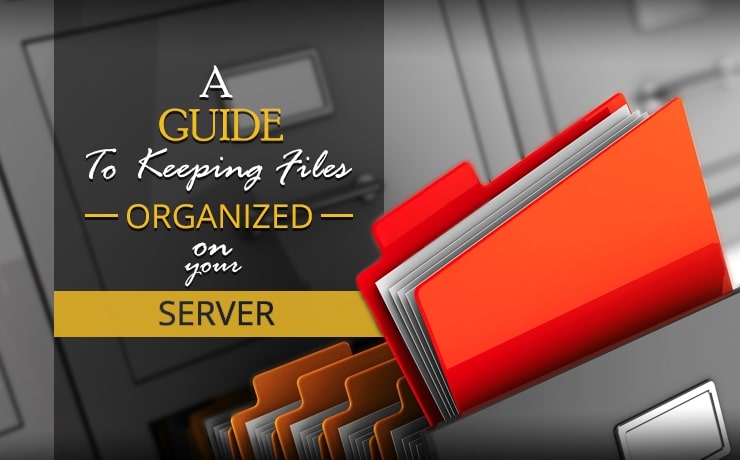A Guide To Keeping Files Organized On Your Server

Chad Faith
Director of Content

Keeping your server organized is one of the most important ways to ensure that you make life easy for yourself as a webmaster. While having a few unnecessary files hanging around is hardly going to affect performance too badly, once these build up, your site can become sluggish and even run out of space.
If you have unnecessary files, or poorly named files, you’ll find that it’s difficult to quickly locate the ones you need so making updates will be a slower process. If your servers get too disorganized it could even lead to the wrong files getting deleted, or to dead links on your site.
For the most part, organizing files on a server is just like organizing files on your computer – which is an art form in itself. At the same time though, there are some strategies that are unique to hosting that can make a big difference. Read on and we’ll look at some of the most important tips to follow when maintaining a tidy and organized server.
Make Constant Backups
This isn’t so much about organization as it is about protecting against some of the dangers of disorganization. Regularly backing up all the files on your server is crucial in order to protect against files getting deleted, altered or corrupted and it can be absolutely life-saving in a crisis. Regularly make sure to download your files then and you’ll avoid any website-ending catastrophes.
Use Folders
The more folders you use, the more you will be able to categorize and segregate your files. What this means in the long term is that you can more easily find the file you want,, and that you can copy and alter whole groups of files at once in a convenient fashion. Here is a discussion on folder use for webmasters that might be helpful.
Use Smart File Names
Using the right file names is also very important. You should generally give files descriptive names that are relevant, indicative of the contents, easily readable, unique and consistent. You should not use spaces or special characters in the file names. When handling a server as a webmaster, there are additional concerns as well. For instance, you need to ensure that your file names work with your SEO – helping Google to identify the subject of your site and pages.
Consistency is particularly important, which is why forming habits and patterns can be a good idea. For example, if your site uses thumbnails, it’s wise to make the names of the thumbnails relate to the names of original images in the same way (by adding ‘thumbnail’ at the end for example). This will allow you to insert references to the thumbnails in your code without constantly looking for them, and to do large-scale find-and-replace operations and to know what each file is at a glance.
Check for Dead Links
Checking for dead links and images on your site is not only a good way to ensure your site is SEO friendly but is also an important way to find and correct files that have been named incorrectly. There are numerous tools for this such as Broken Link Checker.
Delete As You Go
Finally, make sure that you delete your files as you go in order to avoid accumulating unnecessary junk. This is particularly important for WordPress users who will often ‘collect’ unnecessary plugins that do nothing but take up space on their servers. Also, if you deactivate it, you should also uninstall it.
 Free
Consultation
Free
Consultation Free
Google Ads Audit
Free
Google Ads Audit







